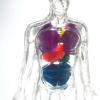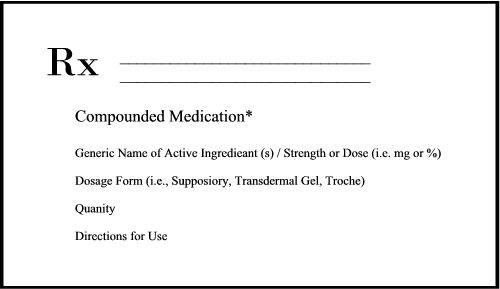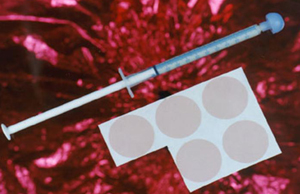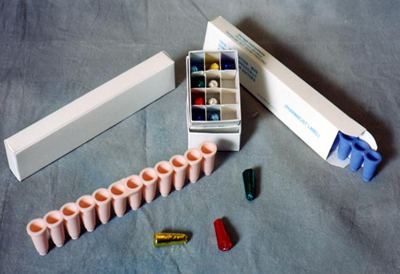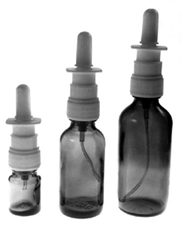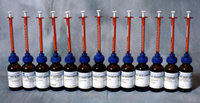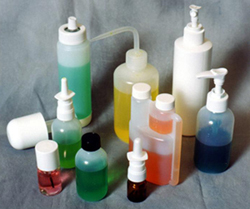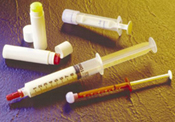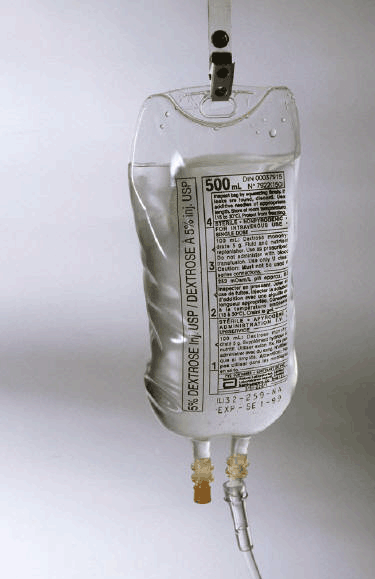Healthcare Professionals
Why should I offer my patients compounded prescriptions?
It gives your patients medication tailored to their needs, giving them extra satisfaction and shows that you care about them.
Patients with unique or unusual medication needs
Physicians may prescribe an individually compounded medication for a patient with an unusual health need. This allows the physician to tailor a prescription to each individual. Compounding preparations are especially prevalent for:
- Patients requiring limited dosage strengths, based on height, weight and age.
- Patients requiring a different formulation, such as turning a pill into a liquid or transdermal gel for people who can't swallow pills due to disability
- Patients requiring an allergen-free medication, such as one without gluten or colored dyes
- Patients who absorb or excrete medications abnormally
- Patients who need drugs that have been discontinued by pharmaceutical manufacturers because of low profitability
- Patients facing a supply shortage of their normal drug
- Children who want flavored additives in liquid drugs, usually so that the medication tastes like candy or fruit
- Many types of bioidentical hormone replacement therapy
To write a prescription for a compounded medicine:
You must include the generic names of active ingredients and the strength/dose of each (i.e. mg or %). Also, you must indicate dosage form (i.e. suppository, transdermal gel, lollipop, etc.), quantity, and directions for use.
Our pharmacists will be happy to discuss formulations and answer any questions you may have.
* Please remember the prescription should begin with the phrase
"Compounded Medication"
- Oral Capsules
Medications formulated in capsules enable the patient to get the exact dosage needed,  while avoiding unwanted dyes and fillers.
while avoiding unwanted dyes and fillers.
Some of the items we custom compound are:
- ketoprofen
- lidocaine
- ketamine
- capsaicin
- gapapentum
- amitriptyline
- cyclobenzaprine
We can combine anti-inflammatory, anesthetic or anti-spasmotic items into one cream or gel for topical application for pain relief. We are available for consultation as to your particular needs.
- Oral Liquids
Preparing medications in a liquid form allows the patient who can’t swallow pills to get the appropriate medicine in a vast range of flavors, such as tutti-frutti or vanilla butternut.
- Difficulty swallowing
- Medication not commercially available as liquid
- Infants, children, geriatrics, hospice
- Avoid unwanted ingredients
- Free of alcohols, dyes, preservatives and sugars
- Increased compliance
- Much more palatable preparations with choice of multiple sweeteners and flavors
- Anhydrous formulations
- May be used if aqueous stability a concern
We can provide hundreds of individual flavors and endless combinations to satisfy human and pet patients.
- A specially prepared emulsion that penetrates the skin and gets medications into the bloodstream quickly
- Effective dosage form for the patient who can’t swallow
- May be used for systemic or local effects
Drug Classes Used in Transdermals
- Thyroid medication
- Antihistamines
- Anti-infective agents
- NSAIDs
- Muscle relaxants
- Antinausea agents
- Antiviral agents
- Anti-inflammatory agents
- Anesthetics
- Anti-anxiety agents
- Anti-diabetic agents
- Antidepressant / anti-psychotic agents
- Anti-hypertensive agents
- Local effects
- Anesthetic
- Antifungal
- Antiviral
- Anti-inflammatory
- Saliva stimulant
- Healing agents
- Oral thrush
- Systemic effects
- Anti-anxiety
- Antipyretic
- Analgesic
- Combination effects
- Smoking deterrent
- Cold preparations
- Antibiotic
- Antihistamine
Troches
Putting medicine into suppositories allows the patient who can’t swallow to receive the required drug.
- Rectal or vaginal use
- Helpful to patients who have difficulty in swallowing, nausea/vomiting
- Injections cause pain, anxiety
- Rapid local affect
- Hemorrhoids
- Irritable Bowel Syndrome (Crohn’s disease)
- Anesthetic, anti-inflammatory, steroid agents
- Reported absorption route for many drugs
- Prevents 2/3 of first-pass effect
- Nasal
- Rapid absorption of drug
- Pump metered spray bottle delivers accurate dose of drug
- Otic
- Anhydrous vehicles
- Combine multiple medications
 | ||||
Quick Links
- Topical Sticks and Tubes
- Medicated Powders
- Compounded Topical Formulations
Many classes of drug used to help in the treatment of Aphthous Ulcers, Chemotherapy-induced Stomatits and Dry Socket Preparations:
 Antihistamine
Antihistamine
- Anesthetic
- Antiviral
- Antifungal
- Anti-inflammatory
- or combinations
Hours
8:30 - 5:30 Mon-Fri
Oral Capsules and Liquids
Transdermal Gels
Medicated Lollipops and Popsicles
Suppositories
Nasal and Otic Preparations
Soft gelatin-flavored troches, such as those prepared in the 24- and 30-count molds, provide medication in an easy-to-take and pleasant-tasting form.
Topical Creams, Ointments, Gels, and Powders
Oral Mouthwashes and Rinses
Compounding Pharmacy Solutions
6105 Beverly Hill Street Suite 201 Houston, TX 77057
(713) 783-2836
Fax: (713) 782-2644
/
Sterile IV Products
A truly unique concept in the pharmacy delivery system with focus on high acuity care patients who receive clinic care at home and require:
- Total Parenteral Nutrition (TPN)
- IV Antibiotics
- Chemotherapy
- Enteral Feeding
- IV Anti-inflammatory Drugs and Steroids
- IV Gammaglobulin and Blood Products
- Pain Management
- Injectables
Delivery
Available
to
Home or Office
Free Delivery
within a 10 mile radius.
Delivery
Available
to
Home or Office
Website by: Painted Path Designs
